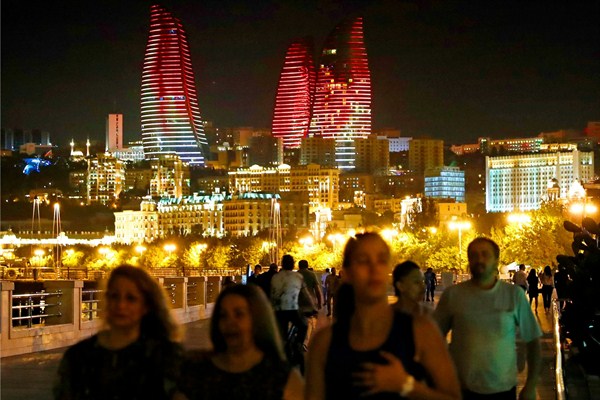Azerbaijan’s parliament voted to dissolve itself last week, triggering legislative elections on Feb. 9. Some observers speculate that the move sets the stage for President Ilham Aliyev to eventually hand over power to his wife, First Vice President Mehriban Aliyeva. She has assumed a much higher profile on policy issues in the past few years, most recently highlighted by a six-day solo diplomatic mission to Moscow in late November. It is unclear why Aliyev would want to transfer power, but he has been in office for more than 15 years, and the opposition has peddled unsubstantiated rumors about his health.
Azerbaijani politics are opaque, and dynastic succession has been the norm: Aliyev took over as president from his father, Heydar Aliyev, in 2003. The recent dissolution of the largely rubber-stamp parliament could be the first stage of another undemocratic transfer of power. But behind the rumors of succession, there are a series of deeper and more revealing shifts taking place in Azerbaijan today. While the country will not become a Western-style liberal democracy anytime soon, recent trends point to a society that is changing—and a government that may now recognize the need to change along with it.
Azerbaijan’s median age is 31.7 years, and about 37 percent of the population is under the age of 24, which means that the vast majority of Azerbaijanis have experienced only two leaders in their lifetimes. The country is underperforming economically, as many people have yet to recover from the effects of a currency devaluation in 2015, which led to painful fiscal belt-tightening and high inflation. Official statistics show inflation is currently at 2.4 percent, but independent economists claim the real figure could be much higher. Average monthly salaries in neighboring Russia are more than double those in Azerbaijan, while in nearby Kazakhstan, across the Caspian Sea, people on average make 30 percent more each month, according to the Interstate Statistical Committee of the Commonwealth of Independent States. The Asian Development Bank warns that Azerbaijan has one of the slowest growing economies in the Caucasus and Central Asia.

